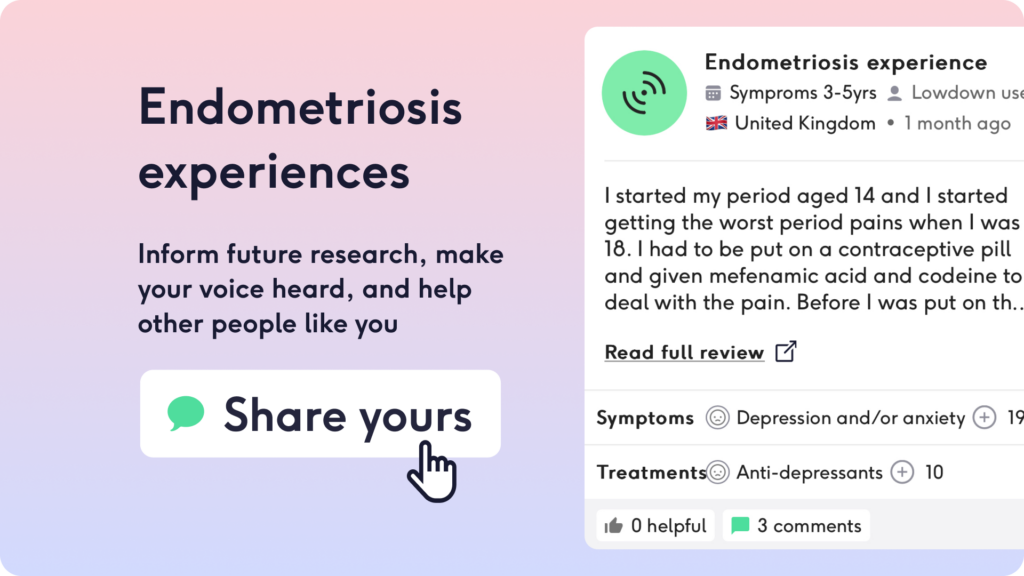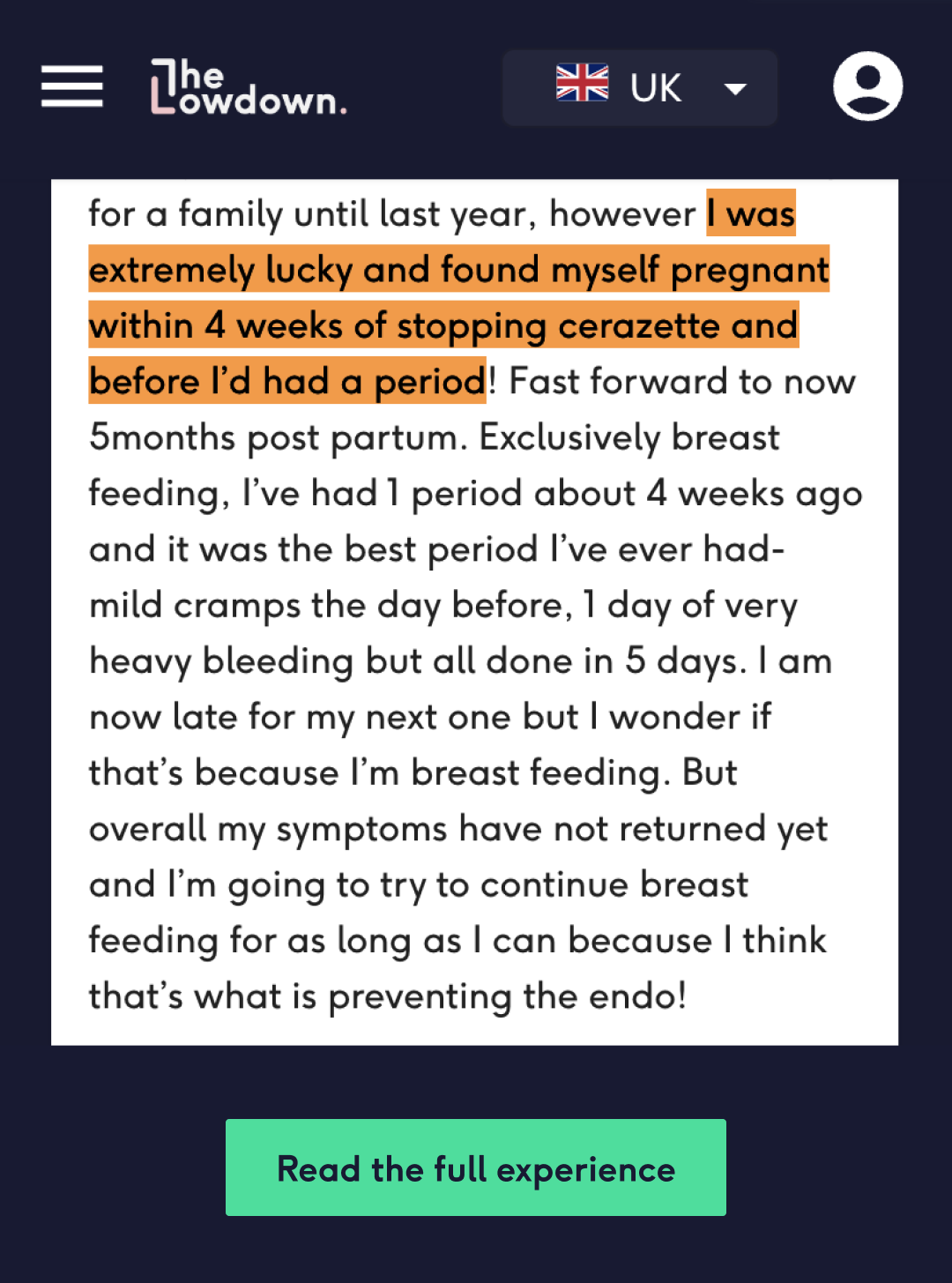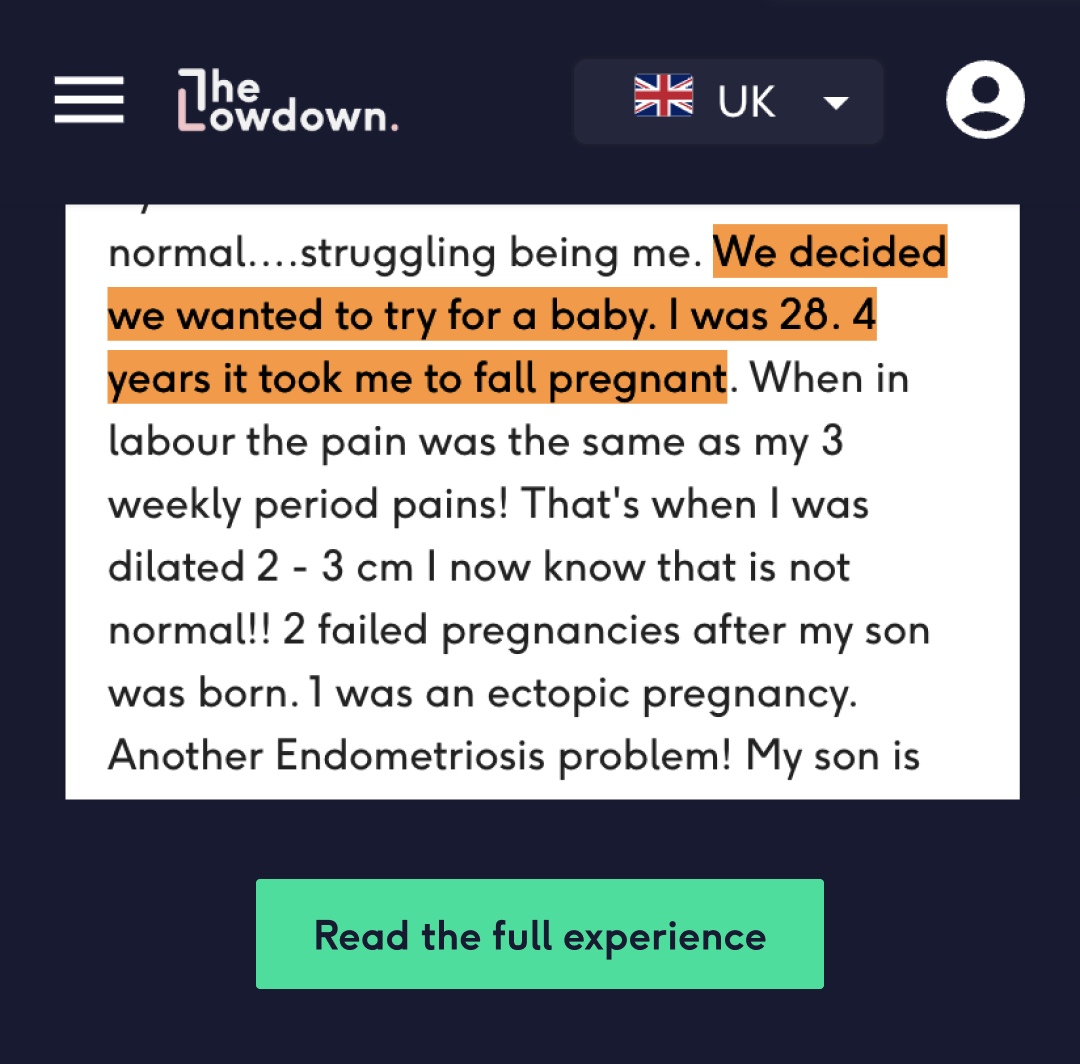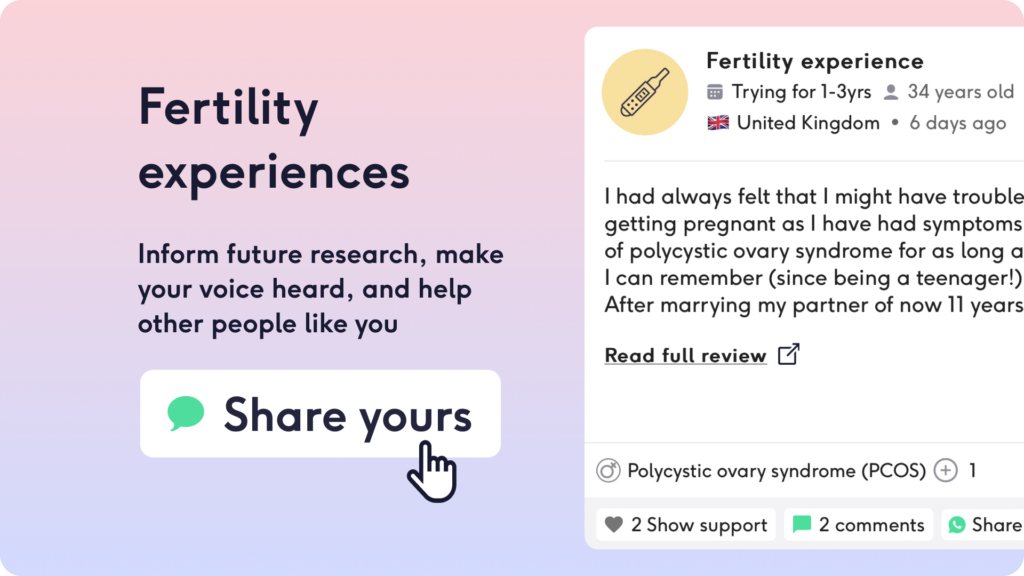
Does endometriosis affect fertility?
This post contains Amazon affiliate links for supplements our doctors recommend – we earn a small commission too ❤️
What is endometriosis?
Endometriosis is a common health condition affecting 190 million people worldwide[2]. Annoyingly, no one knows the true cause of endometriosis. The condition causes cells which are similar to the lining of the womb (the endometrium) to grow in places outside of the womb, for example, on your ovaries, pelvic wall, and even your bowel. Symptoms often include heavy periods, chronic pelvic pain and fatigue, although some people will never have any symptoms. Endometriosis can also affect fertility in some people.

How does endometriosis affect fertility?
Endometriosis may affect fertility as it can affect the reproductive organs, including the ovaries and fallopian tubes. It can cause adhesions (scar tissue) where pelvic organs become stuck together through inflammation or through ovarian cysts. However, we still don’t fully understand how it all works.. Up to 50% of women[3] who are being investigated in fertility clinics are found to have endometriosis, and for many of them struggling to get pregnant is their only symptom.
Just because you have a diagnosis of endometriosis does NOT mean you can’t conceive naturally. We do know that most couples (60 to 70%) will get pregnant within 1 year of trying to conceive, compared to 84% of couples where endometriosis is not an issue[4]. In fact, our Founder Alice, who has endometriosis herself, conceived her first child naturally.
How can I improve my fertility with endometriosis?
We would advise anyone trying to conceive to boost their fertility through following a healthy diet, exercising (but not to excess), and reducing alcohol. You should make sure you’re taking folic acid and vitamin D (buy from Amazon), and check out our endometriosis reviews for other supplements which have helped women when trying to conceive.
Our expert fertility nurse Kate can offer individualised advice on how to optimise your fertility.
You can also take our fertility quiz to see how you can improve your fertility, whether you’re trying right now, planning for the future or just curious!
Surgical removal of endometrial deposits and cysts has been shown to improve your fertility, as well as managing pain, and is often used as a treatment for fertility problems in women who are found to have endometriosis. The best time to try to conceive with endometriosis is felt to be soon after surgical removal of these endometrial deposits or cysts.
If you are thinking about starting a family, but aren’t quite ready, using hormonal contraception may help reduce the progression of endometriosis until you are ready to conceive. There is little research in this area, but studies have shown that without treatment, endometriosis slowly gets worse over time. If tolerated well, hormonal contraception can help manage pain and other symptoms. Reducing the progression and severity of endometriosis may also therefore help to protect your fertility. There is no evidence other drug treatments for endometriosis improve fertility. We’ve got lots more information on the best contraceptive for endometriosis, or you can discuss your options with our team of women’s health experts.

How long will it take to get pregnant with endometriosis?
How long it takes to get pregnant is dependent on lots of factors, one of which may be endometriosis. Our trying to conceive tool can give more of an indication on which factors are important for you and your partner. Fertility seems to be related to the severity of endometriosis found through a laparoscopy (keyhole surgery to help diagnose endometriosis). 75% of women with mild endometriosis will conceive within 1 year, 50% of women with moderate endometriosis and 25% with severe endometriosis will conceive within one year of trying.[4]
Even with endometriosis, you can become pregnant very quickly, like this Lowdown reviewer:

Others may take longer:

If you want to learn more about what it’s like trying to conceive with endometriosis, you can ask people who have been through it on The Lowdown! Just leave a comment on any of our endometriosis experiences to ask questions and get tips, for instance, on how long it took to get pregnant, and other advice from personal experience.
What if I’m not getting pregnant with endometriosis?
For many couples, taking up to a year to get pregnant is completely normal. However, if you are diagnosed with endometriosis, you may be able to get referred for fertility support and treatment earlier than people who don’t have endometriosis. Depending on your local area, you may be offered further tests and support to get pregnant if you haven’t conceived within 6 months. It’s best to speak to your GP after 6 months, or even before you start trying, to understand what is available to you locally.
Fertility specialists can offer surgery to remove endometriosis, treat endometrial ovarian cysts or help conception with methods such as ovulation induction or in-vitro fertilisation (IVF).
Where to get support for endometriosis and fertility?
If you are experiencing symptoms of endometriosis and cannot endure the NHS waiting list for a scan, then Scan.com can offer you the chance to skip the queue and book in for a private scan instead. Scans include; MRIs, ultrasounds, CT and X-ray scans in your local area, so they become easy and accessible to you.
If you have endometriosis or suspect you might have it, our expert women’s health GPs and fertility specialist nurse can advise on preparing for pregnancy and what to do if you have any issues. Your own GP can offer referrals for further fertility support if needed.
Trying to get pregnant can be a stressful and sometimes lonely journey, which is why our unique user reviews from our endometriosis and trying to conceive communities are here to help. You can filter through hundreds of real life experiences to find someone just like you, connect with them and learn how they managed this process.

Our medical review process
This article has been medically reviewed for factual and up to date information by a Lowdown doctor.






